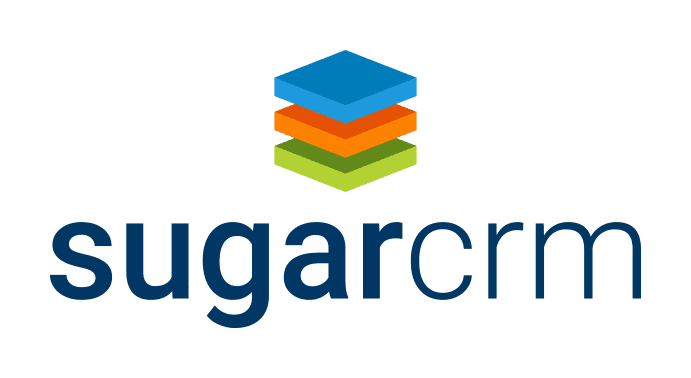With advanced data management, analytics, and process automation capabilities, one system can revolutionize the finance function.
CFOs face increasing pressure to drive profitability while streamlining (and automating) their organization’s finance functions. By integrating various business processes into a unified system, Enterprise Resource Planning (ERP) is the one system emerging as the solution to address these challenges. Besides making more informed decisions, CFOs can finally unlock new levels of efficiency.
Moving Up: Not a CFO yet? Catch C-suite attention by reading this article instead.
CFO Challenges Have Moving Targets
In an increasingly competitive and complex world, CFOs must navigate many challenges to ensure their organizations’ financial health and growth. Understanding these challenges is crucial in pinpointing the most effective solutions.
Here are some of the CFO’s biggest concerns today:
Cost control and growth balance
CFOs constantly walk a tightrope between controlling costs and investing in growth opportunities. They must find the right balance to ensure the company remains competitive while maintaining a healthy bottom line.
Regulatory compliance watch
With a constantly evolving regulatory landscape, CFOs must lead their organizations through compliance efforts that keep all relevant financial reporting and tax requirements by implementing the necessary controls, processes, and systems to minimize the risk of non-compliance and associated penalties.
Complex financial processes and data management
CFOs oversee many financial processes, from budgeting and forecasting to financial reporting and risk management, which involve handling large volumes of data from disparate sources, making it challenging to ensure data accuracy, completeness, and consistency.
Advanced technology opportunities
With the rapid pace of technological change, both opportunities and challenges are presented for CFOs. While emerging technologies like artificial intelligence, machine learning, and blockchain can offer significant benefits for financial management, they also require CFOs to stay informed and be prepared to adapt their organizations’ processes and systems to remain competitive.
Growth Watch: Still using Quickbooks and hoping to scale? You’ll want to read this.
These powerful tools help CFOs streamline their finance functions and ultimately drive profitability, but that’s just the beginning of an ERP system’s advantages for CFOs.
Cloud ERP Systems: Built for CFOs
Cloud-based ERP systems offer a comprehensive solution to help CFOs handle more challenges by integrating separate business processes into a single platform, dramatically improving financial management, boosting efficiency, and supporting data-driven decision-making.
Enhanced financial data accuracy and visibility
- Real-time reporting: CFOs access real-time financial data from the cloud, allowing for more timely and informed decision-making, not only improving the accuracy of financial reporting but also helping identify potential issues or opportunities as they arise.
- Data consolidation and centralization: With a cloud ERP system in place, financial data from across the organization is consolidated into a single, centralized platform, eliminating data silos and improving data consistency, accuracy, and visibility.
Streamlined financial processes
- Automated financial workflows: Automation capabilities that can streamline and standardize financial processes, such as accounts payable and receivable, general ledger management, and financial close processes, reduce manual effort and human error but also free up the finance team to focus on more strategic initiatives.
- Improved efficiency and reduced human error: By automating repetitive tasks and standardizing processes, ERP systems can significantly reduce the time and effort required for financial management, leading to increased efficiency and reduced errors.
Better financial planning and analysis
- Advanced analytics and forecasting tools: ERP systems often include advanced analytics and forecasting capabilities, which can help CFOs make more accurate predictions about future financial performance and identify potential risks and opportunities.
- Data-driven decision-making support: By providing comprehensive, real-time financial data and analytics, ERP systems empower CFOs to make better-informed decisions, ultimately driving improved financial performance and business growth.
Improved inventory management and procurement
- Accurate tracking of stock levels: Robust inventory management features help CFOs accurately track stock levels, optimize inventory turnover, and reduce carrying costs.
- Optimized purchasing and supplier management: ERP systems can also streamline procurement processes by automating purchase order creation and tracking, improving supplier management, and promoting better collaboration between procurement and finance teams.
Enhanced compliance and risk management
- Built-in regulatory controls: Built-in controls and features to help organizations meet regulatory requirements, making it easier for CFOs to ensure compliance with financial reporting and tax regulations.
- Improved audit trails and documentation: With centralized data and process automation, ERP systems can provide better audit trails and documentation, making it easier for CFOs to manage risk and demonstrate compliance during audits.
Ready to revolutionize your finance function, unlock new levels of efficiency and get that boost in profitability? To unleash the power of ERP for your organization, book a demo.
Most Important ERP Implementation Considerations for the CFO
Implementing a modern ERP system is a significant investment requiring careful planning and execution. For CFOs embarking on the ERP implementation journey for their organization, follow these tips.
Choosing the right ERP solution
- Assessing business requirements: Before selecting an ERP system, CFOs must thoroughly assess their organization’s specific needs and requirements. This should involve identifying the key financial processes and pain points and considering the organization’s growth plans and future needs.
- Evaluating vendor offerings and support: With numerous ERP vendors in the market, it’s crucial for CFOs to carefully evaluate each vendor’s offerings, track record, and support capabilities. This may involve reviewing case studies, requesting product demonstrations, and speaking with existing customers to understand each vendor’s strengths and weaknesses.
Building a successful implementation plan
- Establishing clear goals and objectives: Setting clear goals and objectives for the ERP implementation is essential to ensure alignment across the organization and provide a roadmap for success. CFOs should work closely with key stakeholders to develop a shared vision for the project and establish measurable targets for improvement.
- Aligning cross-functional teams: ERP implementation is a cross-functional effort that requires collaboration between finance, IT, operations, and other departments. CFOs should establish a dedicated implementation team with representatives from all relevant functions and foster a collaborative environment that encourages open communication and knowledge sharing.
- Ensuring change management and training: Change management is a critical aspect of ERP implementation, as it involves transitioning employees to new processes and systems. CFOs must develop a comprehensive change management plan that includes regular communication, employee training, and ongoing support to ensure a smooth transition and maximize user adoption.
Measuring the ROI of ERP implementation
- Identifying key performance indicators (KPIs): To assess the success of the ERP implementation, CFOs must identify relevant KPIs that align with the project’s goals and objectives, including metrics related to financial performance, process efficiency, data accuracy, and user adoption.
- Tracking improvements and tangible benefits: CFOs should regularly track and analyze the identified KPIs to measure the progress and impact of the ERP implementation. By monitoring these metrics, CFOs can identify areas for improvement, make data-driven decisions, and demonstrate the tangible benefits of the ERP system to stakeholders.
Under the direction of a forward-thinking CFO, ERP systems have the potential to revolutionize the organization’s finance function. Whether streamlining processes, enhancing data management, and driving better decision-making, any CFO can successfully implement an ERP system that delivers significant benefits and supports their organization’s growth and success using these tips.
If you’re ready to get started on your journey towards streamlined financial management and business success, empower yourself with the knowledge and insights you need to transform your finance function for the better. Grab a slot with one one of our finance experts.

